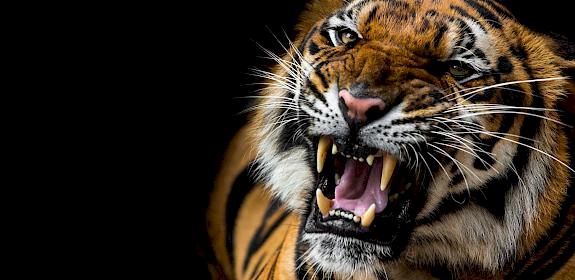Turtles no longer turn to souvenirs in Dominican Republic
Gland, Switzerland/Washington, US, 25th March 2009—Critically Endangered Hawksbill Turtles are no longer being sold as tourist souvenirs in the Dominican Republic after a powerful government campaign cracked down on shops illegally trading such items. More than 99 percent of these souvenirs have been withdrawn or confiscated according to TRAFFIC, wildlife trade monitoring network.

A 2006 survey carried out by TRAFFIC found more than 23,000 items made from Hawksbill Turtles for sale. A February revisit of the same locations revealed a dramatic reduction with only 135 shell items.
The success has been achieved thanks to a widespread government-led action launched in November 2008. The Dominican Republic has encouraged the trade of alternative products such as cow horn or bone to present an alternative to shops trading with these turtles.
“We warmly congratulate the Government of the Dominican Republic on their decisive action that has virtually eliminated the blatant illegal souvenir trade in Hawksbill Turtle shells,” said Adrian Reuter, TRAFFIC’s Representative in Mexico.
“This sets an important conservation example for the region, showing that there are solutions that benefit wildlife and people, especially local communities that rely on tourism.”
Hawksbills are one of three marine turtle species that nest on beaches in the Dominican Republic. Over the last century, millions have been killed for the tortoiseshell markets of Europe, the United States and Asia. Today they are preyed upon by poachers mainly for their shells, which are made into souvenirs and sold to tourists, millions of whom visit the country, mostly from North America and Europe.
Hawksbills are classified by IUCN as Critically Endangered and facing an extremely high risk of global extinction. They are listed in Appendix I of CITES (the Convention on International Trade in Endangered Species of Wild Fauna and Flora) along with other marine turtles, which prohibits their international trade.
“With marine turtles around the world being threatened with extinction, we need to maximize every effort to save these species, not least because they are worth infinitely more alive as tourist attractions than dead,” said Carlos Drews, WWF’s regional co-ordinator for marine turtle conservation in Latin America and the Caribbean.
“The good news from the Dominican Republic is that it demonstrates to fellow nations that a real difference can be made to reduce illegal trade.”
A video taken in 2006 in the Dominican Republic showing the scale of illegal turtle souvenir items for sale, prior to the government clampdown
Notes:
* The market surveys undertaken in February were carried out under the co-operation framework of the Central American-Dominican Republic-United States Free Trade Agreement (CAFTA-DR).
* There are an estimated 8,000 nesting female hawksbill turtles that inhabit the coastal waters of a 180 countries around the world. The survival of the species is threatened by illegal tortoiseshell trade, egg collection, slaughter for meat and recently, climate change.




